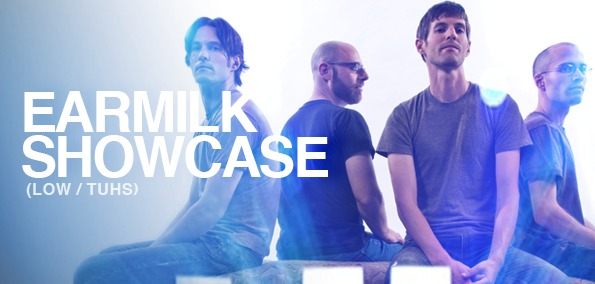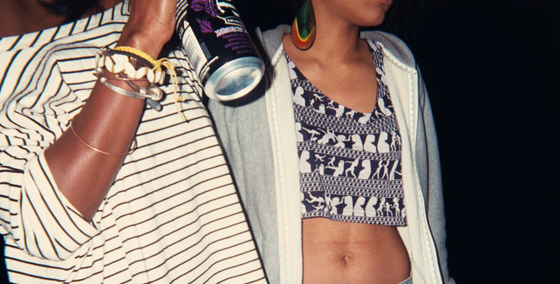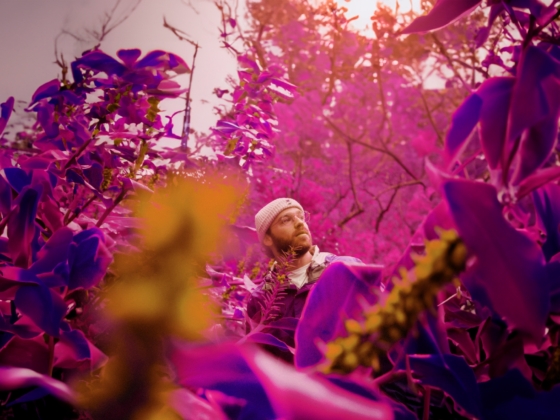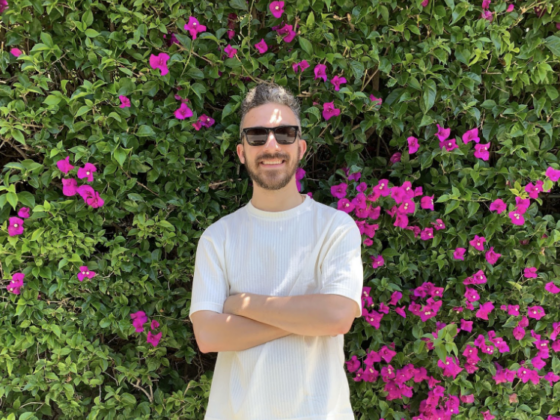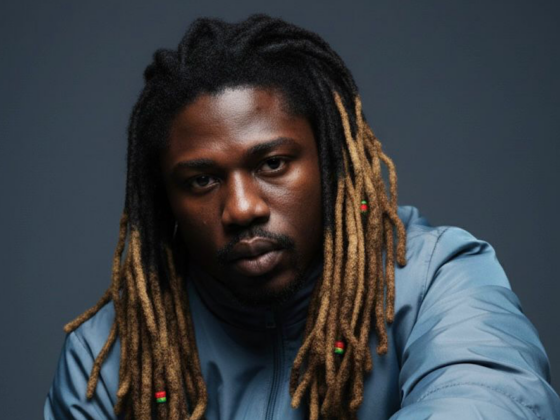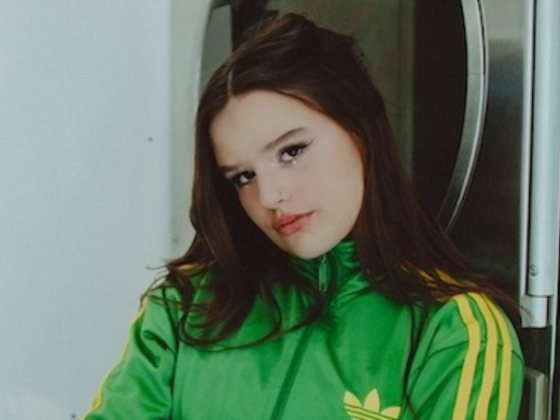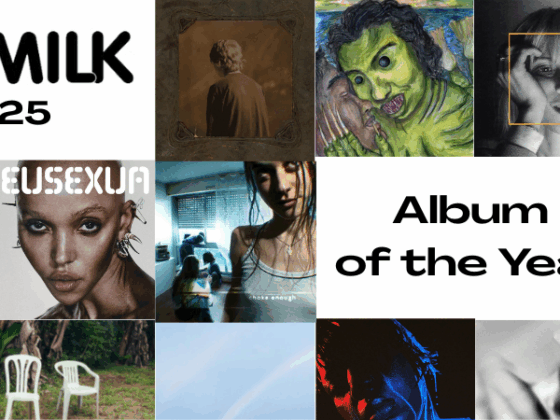"I'd rather our genre be referred to simply as Lotus. That may seem… off, but we do our own thing, and the stigma that comes with being labeled a jam band is something I'd like to avoid." When Luke Miller said that to me over lunch last Saturday, he was referencing how jam bands are received in the online musical community, particularly major blogs and magazines. Back in the early 2000's when Lotus was half the size and still looked at Goshen College as their home base, sure—it would be hard to argue they weren't a jam band—their music oozed with the attributes that define one as such. Since then however, the band has evolved drastically, as has the music industry, and Luke is more or less correct: Lotus really isn't a "jam band," at least not anymore.
Lotus – "Ashcon"
[soundcloud url="https://api.soundcloud.com/tracks/73379136" params="" width=" 100%" height="166" iframe="true" /]
Rock and electronica/dance serve as the foremost components of Lotus' musical identity, but classifying them into any particular genre is admittedly a fool's errand. Their music rides on the tributaries of not only rock and electronica, but jazz, hip hop, funk, and various other genres—creating a conglomerate of styles that deems their music enigmatic by definition. What they've managed over the past decade epitomizes the concept of a multi-genre band, exploring a pallet of various sounds rivaling that of any other group over the same period.
Lotus – "Break Build Burn
[soundcloud url="https://api.soundcloud.com/tracks/73379130" params="" width=" 100%" height="166" iframe="true" /]
If you examine their six studio albums and the progression of their music over the years this multiformity feels obvious, but there may be no better testament to their range than a live performance. By ditching the typical regurgitated set lists of modern tours, Lotus makes a point of trying to create a different experience each time for their fans. The result is a concert environment that feels veracious, like an organic one-time experience. The authenticity of a Lotus concert has become the popular narrative for recounting showgoers, and the major drawing point for their expanding fan base. Additionally, their sets weave in and out of songs with remarkable fluency, showcasing the coherence and talent of the group through a recurring improvisation which feels atypical for a band with their level of electronic instrumentation. This prominent ad-libbing in a live arena is the crux of their jam band moniker, and eight years ago it basically served as the essence of their voice—but no longer is it definitive of their music, particularly by comparison to stereotypical jam bands.

Earmilk: How long have you and Jesse been playing together?
Luke Miller: We had a Ska band in high school, we had about three horn players—Had to write out the horn sections, but that's pretty much how we got started. We're twins, our first year of college we went to different schools and I started Lotus with Mike (Guitar) and two other guys, and then Jesse's sophomore year he transferred schools and started playing bass with us.
EM: When you guys were kids did you work together on a lot of things?
L: Not necessarily, we did a lot of things together obviously being twins, but we have a lot of differences too. We get in arguments, it's not just one mind with two mouths. We but heads a lot but I think that makes both of us better. We can call each other out on bullshit, tell each other when things sound like garbage.
EM: Well with you guys the important thing is being able to speak the same language in the end, musically. You seem to have that down.
Jesse Miller: Yeah, that's something you develop over time playing with each other, getting a feel for phrasing—you know sometimes things go wrong, but—that's one one the advantages, that that doesn't happen after you play together for a long time.
Lotus – "Middle Road"
[soundcloud url="https://api.soundcloud.com/tracks/73379133" params="" width=" 100%" height="166" iframe="true" /]
EM: With the ad-lib style of playing, you guys seem to have an easy time speaking the same language musically, playing and improving together. Did that sort of cohesion and fluent innate report with each other take a long time to develop?
L: We all listen to different types of music. Jesse's into very much 70's rock type of stuff, Mike listens to a lot of ambient music, I listen to more Pop stuff, Hip Hop. Chuck listens to a lot of World music, and so we kind of have to come together. Doing a long tour like this helps us get more on the same page, but it's just constantly a learning process of how to listen and play with each other, find what worked an what didn't.
EM: When you're writing your albums, is it similar to a live improv session where you sit in the studio and feel out things—how does that really come to be?
L: No, me and Jesse have our own little personal studios where we write the songs in, and we just bring them to the band and designate roles, etc. We get together later for rehearsal and work out the small details, the sort of dynamics and transitions and tweak things. Most of the work is—what me and Jesse record for the demos is usually not far off from what the final produce ends up being.

EM: When you take a song to a band, you have a general idea of each section, but how much do the members then flesh out after you present it?
L: Jesse and I write out all the drums, guitar, the fills—the whole thing.
EM: So, not to take away from other members of the group, but when talking about Lotus and how the band operates, you and Jesse are at the top and then things sort of follow what you guys are pushing for?
L: Yeah, I mean there can't be too many cooks in the kitchen, you know.
J: Right, we do all of the writing, the producing.
L: All five of us are definitely Lotus, but Jesse and I are more directing things. When you go see an orchestra, it's not just the conductor.
Lotus – "Molluskunk"
[soundcloud url="https://api.soundcloud.com/tracks/23178345" params="" width=" 100%" height="166" iframe="true" /]
EM: From a dynamic standpoint, is it like two brothers working on a project together, or is it much more business now?
J: We live in different cities so it's mostly just sending stuff back and forth. We're not usually doing a ton of collaborating actually, with both of us working on a piece, as much as usually one of us tends to curate the most of it and then at a certain point we pass it back and forth to get it as solid as possible. Every once and a while one of us will tell the other to send them the session and we'll punch out a part for it, work out some other ideas, but mostly we try and get it detailed as possible before rehearsal.
EM: So one of you gets an idea, begins it, bounces it off the other, and then over time it come to fruition?
J: Not usually, actually most often he or I will get almost completely done with a song and then we'll send it over to the other person and he'll give me suggestions, tell me what to cut out, or add, maybe "develop that part a little better."
EM: Ok, so each song is typically one or the other's creations—do you guys ever get to sit down and create something together?
J: We don't really do that, it takes a long time to put something together and I think the getting the best product for us means spending a lot of ours at home experimenting and searching for the right thing. In my experience, trying to write with other people by improvising, you can sometimes get the same ideas but then you have to put in the heavy lifting later working through the details on your own.
The album was more electronic but it was pretty eclectic overall. It was maybe sort of a mission statement that says 'You know, we've arrived and this is who we are.'

Society tends to shun anything it doesn't really "get" or find immediately appealing. I call this "the banana album complex," a reference to the debut album from The Velvet Underground that at the time was rejected for being too nihilistic but is now widely accepted as the most prophetic rock album ever made. It is the reason so many movies these days feel the same, that the radio is shit, and why the music industry tends to steer clear of jam bands—hence the stigma that Luke was referring to. The jam band culture isn't much unlike suprematism. Of course, as art forms derived from two different mediums there are infinitely more contrasts than agreements between the two—but from an accessibility standpoint they're not dissimilar. Each acts as arguably the most polarizing personas of their respective artistic bases, built off of a devout following of zealots who simply "get it," while others do not. Jam bands require a sort of acquired taste. They live off of long solos, their albums are generally underwhelming in comparison to their live sets, and there's a reason so many people need psychedelics to truly engage in their performances.
Lotus – "Massif"
[soundcloud url="https://api.soundcloud.com/tracks/70363748" params="" width=" 100%" height="166" iframe="true" /]
With Lotus, long solos are hardly the foundation of their performances, and their improvisation feels more like an extension of the track it began with than a masturbatory tangent meant to showcase one's singular abilities. Their music is blatantly similar to their listed influences like Aphex Twin, Brian Eno and The Talking Heads, none of whom are jam bands. Not once during their two day stint here in Richmond did it feel like they had any intent on paying tribute to The Grateful Dead—the founding icons that jam band advocates so religiously praise—nor was it ever apparent to me during my time with them that they feel such notions hold any relevance. Plain and simply, Lotus is a band that is their own identity, an original concept that involves improvising on stage in no more adamant a fashion than your modern DJ or your 70's arena rocker. Lotus is Lotus, and that's where the labeling stops.

EM: A lot of bands tend to use their self titled albums as an announcement, of sorts, whether it's a debut sort of "Here we are, world" sort of thing, or more of a step into who they truly are after exploring for a few albums. What drove you guys to go with the self title two years ago rather than early on?
L: Well, I don't really have a good answer for that (laughs). The album was more electronic but it was pretty eclectic overall. It was maybe sort of a mission statement that says "You know, we've arrived and this is who we are." I had come up with the names for all of the other albums, and then I couldn't think of one for that and Jesse suggested it and it stuck.
EM: Do you also name the song titles?
L: Whoever writes the song names it. When there's no lyrics it's fun. I always try and kind of match up the title to sort of describe what the song might be about? I dunno. Sometimes it's just stuff I'm thinking about or things I'm trying to accomplish in the track.
Lotus – "Golden Ghost"
[soundcloud url="https://api.soundcloud.com/tracks/23173967" params="" width=" 100%" height="166" iframe="true" /]
EM: Your music has slowly progressed into a more electronic sound over time, a shift that seemed to really take form with Lotus back in 2011. Build is arguably the most "dancy", if you will, of them all. Were you guys exploring different styles on purpose, or was it just how things played out?
L: We recorded almost two and a half albums worth of content for Build, and it just happened that the more electronic stuff all got chosen. We're working on these other albums (from those songs) that are going to be different—one's going to be more vocal oriented—but those tracks are the ones we chose that just fit together the best.

EM: Right, and even with your albums—you could take Lotus and put it next to Hammerstrike and they aren't really the same things, but they have some similarities, but then if you took the Hammerstrike and put it next to Build—they're really very different.
J: Sure, and Hammerstrike was really the "Rock" album, that was kind of the idea behind that one. But yes, we try to mix it up on every album.
EM: Right, and with that as a listener it's pretty obvious what the differences between albums are. Is each album a test into something new or is it just what feels right at the time?
J: Well, not necessarily. For Build we recorded tons of stuff last year and we were working on this Hip Hop album, and tons of other material. What became Build was the things that all leaned in a certain direction. It wasn't like we sat down and said "we need to write an electronic album."
Lotus – "The Surf"
[soundcloud url="https://api.soundcloud.com/tracks/23176445" params="" width=" 100%" height="166" iframe="true" /]
EM: With vocals—that's not typically something you guys do—"The Surf" on Lotus is one great example, which has a very chill Album Leaf sort of vibe to it—but with the upcoming album you mentioned, is it going to have the same feel as Build but with vocals, or is it going to harken back to earlier sounds?
L: Well, it's more or less totally different. Some are more like Build, some are much more mellow, I did one with acoustic piano. Almost more Indie, sort of like Radiohead and their more mellow stuff.
EM: Is it going to be more like Lotus where the vocal tracks are spread sparingly throughout?
L: We're going to try and make it more focused so if it's only an EP we'll have it be mostly vocal mellow tracks, or more electronic tracks—but we're going to try and have the albums be less eclectic.
EM: Excellent. Are you playing any of these unheard tracks in your live shows right now, on tour?
L: Yeah, we've got that Hip Hop album that's completely done. There's a portion of the fan base that goes to most of the shows on tour so they know those songs, and then there's another portion that only make it to one show and we want to make it enjoyable for both of those groups of people. Most people come to a show and want to hear a majority of songs they know, so we're not going to do a show of mostly unreleased songs, but we like to sprinkle them in there.
It's not my favorite thing to play our really old stuff because it feels sort of like reading an essay I wrote in college, but (laughs) there are some fans that appreciate the older stuff. Its nice to get a taste of it all.

In comparison to the last couple albums, the band's early work is slightly less impressive. This seems more to do with shifts in the bands complexion and attempts at compositional exploration—a search for their musical niche. Excluding Hammerstrike, their studio albums from 2004 through the present have a prominent electronic feel to them, although over time it's evolved from a somewhat sofa rocker–meets–funky jazz-jam rock sound into something much more danceable. This shift cries for recognition in their most recent album Build, a lushly recorded masterpiece that soars over their earlier works so evidently that some reviewers have found it difficult to accept as a product of the same band. Pineapple juice tastes more like a chocolate pretzel than their new album sounds like something made by a jam group. It's a good record—very powerful and aggressive around the edges, articulated by excellent musicianship and surprisingly heavy beats.
Rather than dipping their toes in beat-driven music as they have in previous works, Build cannonballs into the deep end of hip hop and electronica. It's more varied in texture and tempo than it's self-titled predecessor, and if Lotus only flirted with the idea of heavier music, Build took it home and bumped uglies. If people love Build for one thing, it will be its single greatest gimmick—multiple styles of music mashed together under digital cognizance performed with juke joint pizzazz. After over a decade of making funky, electro-jamrocky jazz-hop (bear with me here), Lotus has kicked the door down on their prior lounge–style beat selves and pumped the room full of adrenaline. If Build is any indication of what's to come from the band, I'm all in.

STREAM THE ALBUM: Lotus – Build
[soundcloud url="https://api.soundcloud.com/playlists/3171961" params="" width=" 100%" height="450" iframe="true" /]

Doing a long tour like this helps us get more on the same page, but it's just constantly a learning process of how to listen and play with each other, find what worked an what didn't.
EM: You guys have been touring for a while now, but you stopped for a couple weeks before kicking off back to back here in Richmond. Is this to showcase anything or was it really just a needed break?
J: Yeah, it's just to not completely wear ourselves out. We did a full six weeks of touring to start, and if we would have put this extra four weeks on that it would have been too much. It was a nice little break, actually being able to get a little sleep and then finish off by hitting the rest of the country. Essentially it's a 47 day U.S. tour in support of the album.
EM: On this tour you guys get a lot of face time with each other—you're around one another around the clock—are there any shenanigans that go on with everyone?
J: Maybe a little bit, but it's like everything. The bus is your office, it's your bedroom, it's the party spot. So we just try to stay out of everyone else's hair. We do a lot of other things while we're touring, Luke and I are always mixing the live shows. There's always work to be done at the end of the day, beers to be drank. We don't hang out outside of tours really, we spend a lot of time with each other on tour.
EM: With Set lists. You set them up Luke, is there a method to tailoring each show in it's own unique way?
L: Well, I look at what we played last time we were in the venue and throw those out. Then there's a stable of the sort of big, heavy hitter sort of improv songs, and those make up the lion's share of the set. I kind of have the songs split into genres, so like 4/4 beat, then Hip Hop tracks, Drum & Bass, more Rock, then I'll just kind of put in a variety. Usually I'll put in only a few Drum & Bass songs, then a variety of rock songs. The majority is more of the dance theme. Like I said, three or four from the new album, a few from the last album, then I'll try and throw in one or two older gems for the older fans.
EM: What's interesting is that most bands put out a new album and then they go and play that album as a set on a tour over and over, you guys seem to pick a handful of songs to play from each album, rather than "Here's two hits from out last albums and now we're gonna play our entire new one."
J: We like to make the shows diverse. In that first leg of the tour I think we played like 85 different songs over the course of the tour. We just have a lot of material and there's fans that come to multiple shows, so for them we like to mix it up but I think we feel that mostly what we play is fresh and relevant. It's not my favorite thing to play our really old stuff because it feels sort of like reading an essay I wrote in college, but (laughs) there are some fans that appreciate the older stuff. Its nice to get a taste of it all.
Lotus – "Aschon (Live)"
[soundcloud url="https://api.soundcloud.com/tracks/78173689" params="" width=" 100%" height="166" iframe="true" /]
EM: You guys do a pretty good job of weaving in and out of styles for shows, they seem to have an organic feel up and down emotion and energy to them. Is that a purposeful soundscape that you shoot for in terms of set order?
L: Yeah, usually I try and make the first song be real strong, try and get people into it right away, nothing that dribbles on but rather wake everyone up so they're like "Yeah, we're on!" Then right near the end of the first set we usually bring down a little bit and then climax toward the end.
EM: I laughed when you guys came on for the encore, it felt so perfectly timed and planned—you all walked out almost immediately when the crowd started chanting in unison—
L: Well we're usually just waiting for the guitarist to piss (laughs), he's got a small bladder. We're always like (laughing) "Dude, the encore will be over in fifteen minutes can you not wait?" and, well. Apparently not.

Richmond's The National Theatre was built in 1923 to showcase Vaudeville acts and motion-pictures, and is the only surviving auditorium on the historical 700 block of Broad Street once known as "Theatre Row." These days it operates as the main non-arena venue in the Richmond area, and is a well received stop on many major band's tour schedules. On Friday and Saturday night last weekend the venue played host to a quintet of electro-rocking entertainers from out west. The group was coming off of a brief two week hiatus in the middle of a tour supporting their new album, Build, and the conveniently located river city was the perfect place to start things back up. In preferred style, both nights were kicked off with vigor—erupting with a wall of sound that turned the anxious murmurs of the crowd into an ecstatic eruption of their own.

It's a matter of opinion on which night was better, but personally I thought they both charmed equally. Lotus stayed true to their ad-lib philosophies, rearranging crowd favorites like "Aschon" and "Massif," featuring harmonized exploratory guitar and bass sessions, keyboard variations and a relentless dose of drums. The psychedelic atmosphere was enhanced by a hardly original but incredibly effective light show that paired with the music flawlessly. They were having a good time on stage and it showed, pushing a contagious vibe through the audience that could be seen in their faces and bobbing heads, and the occasional shouts of "Ooooohhhh" when the beats dropped. Additionally, their openeners (The Werks on Friday, Former Champions on Saturday) set the tone well for the headliner, and respectively, did a fantastic job. Each night the band was typically gracious, thanking the crowd and providing encores on command. It was a exhibition that most anyone would find enjoyable, simply put—just a really great show.
LIVE SET: LOTUS – 1.25.2013
[soundcloud url="https://api.soundcloud.com/playlists/3615761" params="" width=" 100%" height="450" iframe="true" /]
GALLERY
In an industry where the typical patron finds a genre and sticks to it, Lotus stands out, not just for the diversity their music encompasses but their ability to mesh the threads of so many influences with such ease. Considering the eccentric vibe that their sound emits, attributing them with almost any genre isn't particularly incorrect—but pigeonholing them into one most certainly is. Seeing as they can't even classify themselves under any particular label, it doesn't seem right for us as listeners to do so definitively, and as such that categorization—what genre they really are—should remain a question mark. They're jam rock traits are no more apparent than their hip hop or anything else, so let's just call it "Lotus Vibes"—because that's what it is.
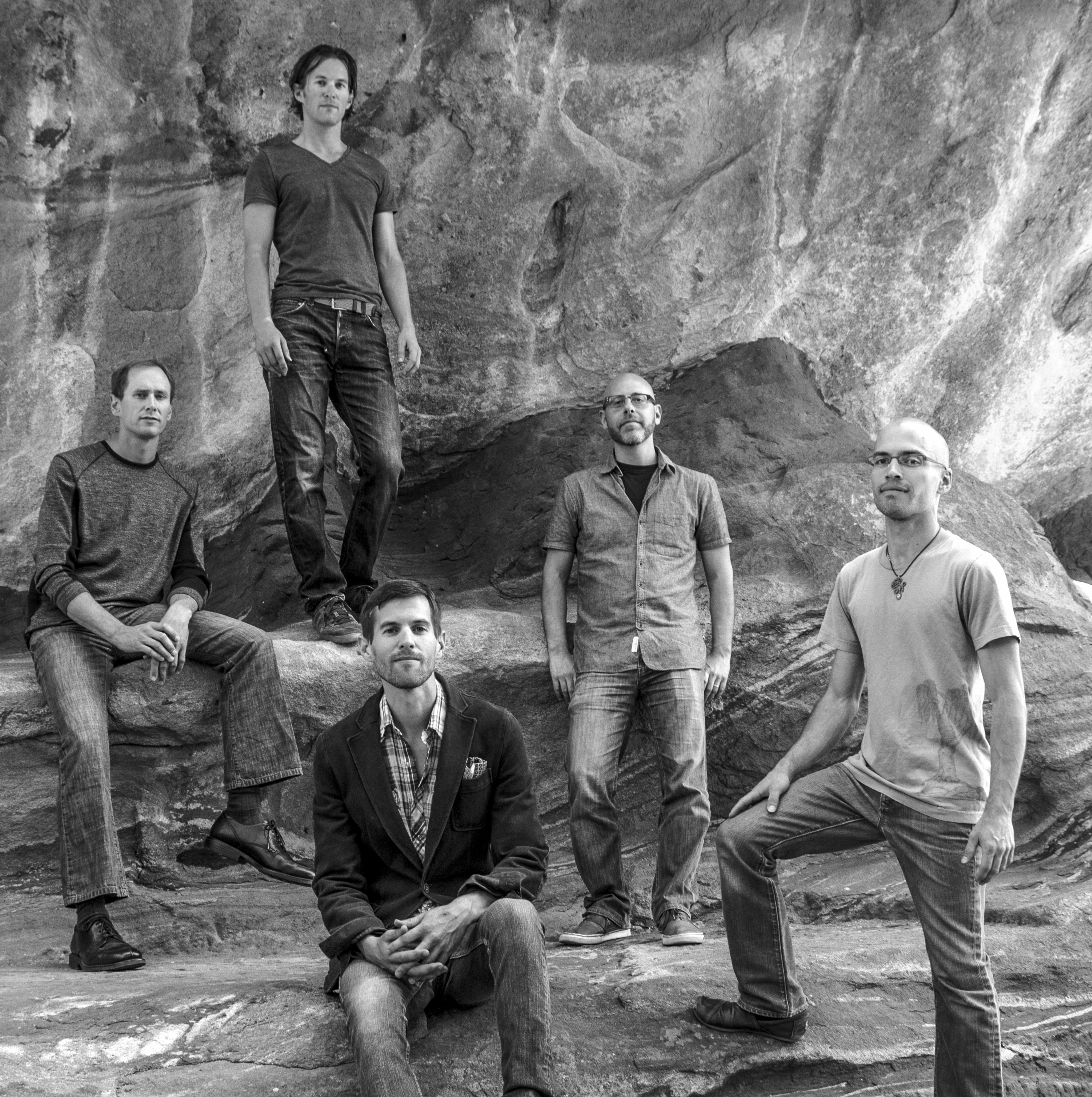
Lotus
Currently on Tour
- Label: SCI Fidelity
- Mgmt: Opus One Productions

